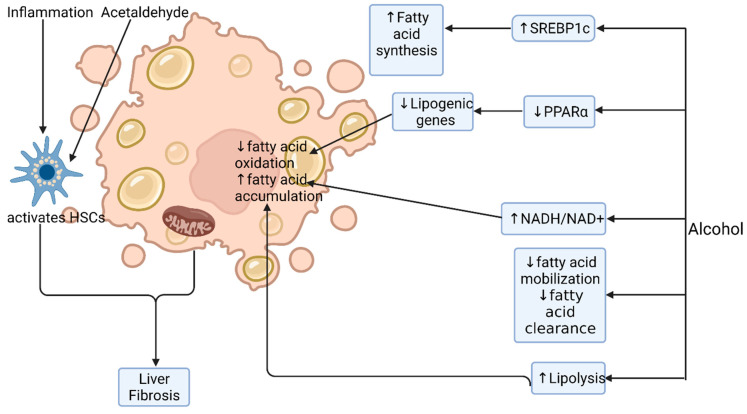Figure 3.
Alcohol-induced steatosis. Alcohol induces hepatic steatosis by multiple mechanisms. It alters the redox ratio in the cell (NADH/NAD+), thereby inhibiting fatty acid oxidation and promoting its accumulation. It increases transcription factor SREBP1c, which leads to increased fatty acid synthesis and deposition. Alcohol inactivates PPARα, a nuclear hormone receptor that regulates many of the genes involved in fatty acid transport and oxidation. Alcohol has a direct inhibitory effect on fatty acid clearance and mobilisation. ↑: increased; ↓: decreased; HSC: hepatic stellate cell. Image created at biorender.com (accessed on 20 August 2021).

